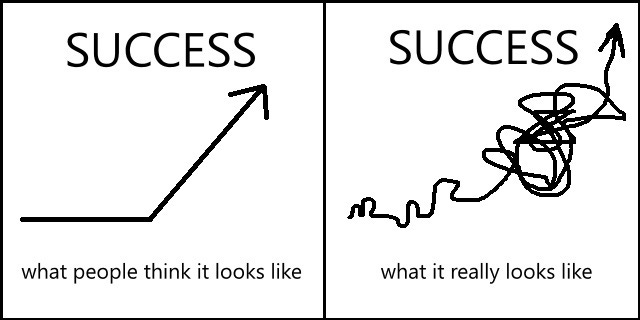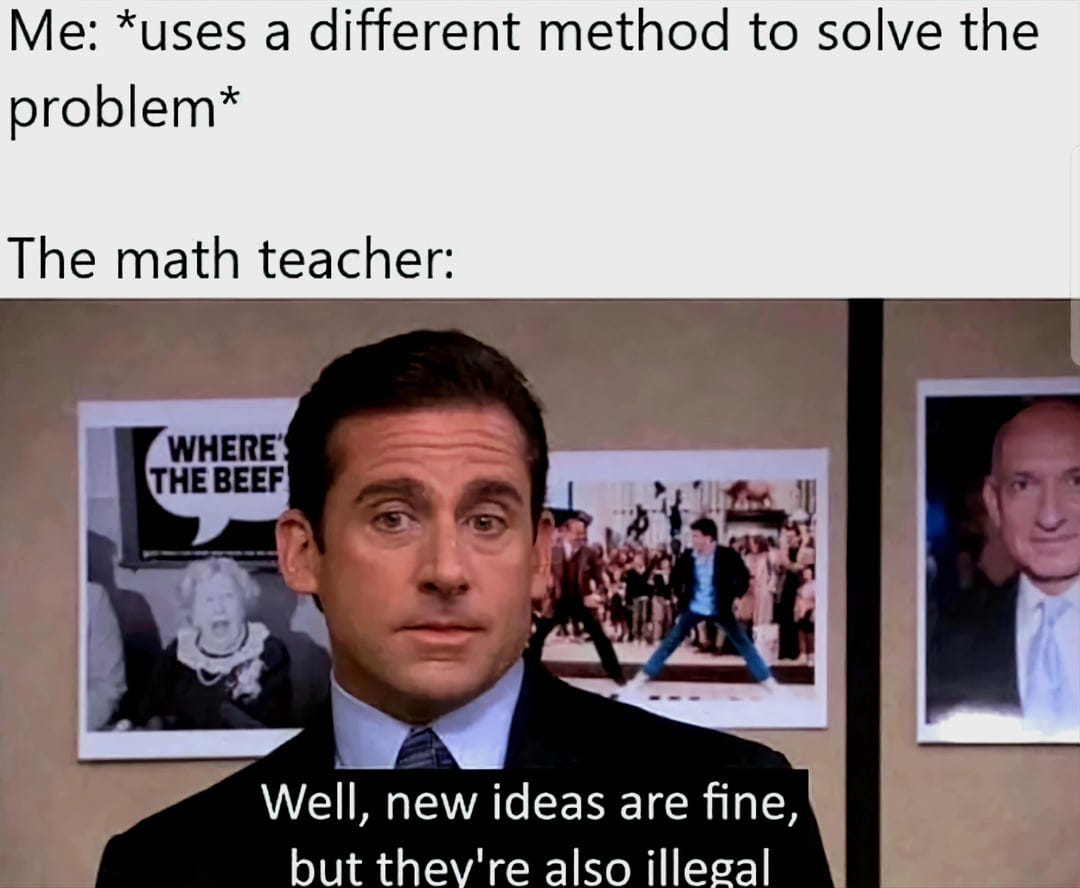Non Linear Language Learning
How to learn a language faster than ever before
Welcome, aspiring polyglot! One of my students was telling me the other day that one of his friends, a native Spanish speaker, didn’t believe he could read Lord of the Rings in the first month of learning Spanish. Worse, she didn’t think that, if he could, it would be beneficial for his language acquisition. Now, five weeks later, he just had his first small conversation and he is closing in on page 70 of the book. He can read with ease and writing is smooth.
But, still, he is finding himself frustrated. Not because anything she said was correct or because he feels things are going poorly, but because he felt like the growth he was experiencing would happen indefinitely. Unfortunately, when you are experiencing massive growth in any you have to be ready to run face first into a plateau at one time or another. There are, though, ways to proactively prepare yourself for the plateau.
Possibilities
After a certain amount of time, people doubting my methods has become standard. Those who take my advice and work with it for 3-6 months also know that much of this doubt is nothing more than noise. Still, when it comes from someone close to you it can be convincing. That is why I always suggest giving your 100% to something for 21 days before passing judgement on its efficacy.
For example, in my classes we tackle 6 verb tenses in 5 weeks. Coming from a public education background, it would make sense that this sounds impossible. However, from a practicality standpoint, understanding all of the verb tenses early on in your language acquisition, even if they aren’t mastered, will serve you throughout the duration of your language learning. This holds true across languages.
Once you have verb tenses at your fingertips, you can begin working with larger pieces of comprehensible input while you master them. Going one at a time limits you in countless ways and is completely unnecessary. It is difficult, of course it is. But you are going to see and hear and use every single tense, so getting an at least cursory understanding of them early on is key to long term success. At the end of the day, tenses are foundational and without a strong foundation things are tough.
The major unexpected event that has happened universally with my students is being able to read fluidly without much help after only one month of classes. Even people who never looked at the language find themselves being able to read challenging literature after only one month. All of this is possible, irrespective of what the naysayers may tell you. That does not mean, though, that the sailing will always be smooth.
Plateaus
Far too many people are facing plateaus without really understanding what is happening during the periods of seeming stagnation. The problem is how you feel is quite relevant to your educational experience. Too much time on the plateau is demoralizing and has led many people to give up when they are far along their language acquisition journey. Unless you’ve experienced it before, the silent changes that are happening in your neural pathways will feel nonexistent.
There are, however, ways to begin noticing subtle changes that can and should help you stay motivated through these periods of time. For example, there will come a time in your language acquisition where you are able to process audio before your brain gets in the way. Counterintuitive as it may sound, your brain does end up becoming an obstacle right around the time you are experiencing stagnation.
This is because you have not learned to trust it with this new language yet and why would you? Until you have had time to see your brain prove that the language processing is actually accurate, you are going to get in your own way when speaking to people. Writing and listening to native speakers can help, but at the end of the day that will all only be theoretical. Once you start practicing, things will accelerate in ways you cannot imagine.
Waiting for breakthroughs, however, is not an enjoyable pass time. At the same time, trying to force them can lead to burnout that turns unproductive quickly. If you want to try and speed up this time on the plateau, you can try a few different things. First, focus on your weaknesses. Sometimes, not always, plateaus are artificially imposed by the all too alluring avoidance of weakness. Avoidance is not resolution and avoiding your weaknesses only makes them more prominent.
The second thing you can do is take a break. A straight up deload week can pay dividends that nights memorizing flashcards simply cannot. I think most people can relate to this, but often the best way to solve a problem you have been wrestling with for days or weeks is to set it down and step away. Viewing everything with fresh eyes often makes things far more clear than they were before.
Since stepping away from difficult material is beneficial, one of the things you can do during these deload weeks is go back through your old writing. Make corrections to writings that were once the best you had to offer. Seeing growth is soothing during phases where things feel slow. It is not a cure all, but at the very least it gives you something tangible to hold on to while you work your way through the highs and lows of language acquisition.
Longevity and realism
Most people overestimate what can be done in a week and underestimate what can be done in a year. That is as true in business as it is in fitness as it is in education. It gets even worse when you are working one on one with someone and experiencing periods of parabolic growth. Realistically, indefinite parabolic growth is next to impossible. Unless a correction is possible, but if that correction is burnout that leads to complete stagnation, that doesn’t seem like a worthwhile tradeoff to me.
If you are always chasing exceptional growth, you will find yourself getting burned out. Not by the material, per se, but rather by the failure to meet your own expectations. Expectations can be a good thing. You should know what you want to get out of your study sessions. But they must be realistic in order to serve you.
Over time, you are going to become far more knowledgeable about the language. As that happens you will begin to realize just how much more there is to learn. The same is true, though, of your native language. Remembering your goals, your expectations, is crucial. If you set out to gain the ability to speak, then failing to articulate ideas you struggle to articulate in your native language is not really failing. It is a new expectation, or goal, you will have to work toward.
Conclusion
A near infinite amount of progress remains for almost every single human within their native language. But the amount they need to know to communicate effectively is far less. Keeping this in mind when you are hitting plateaus is important because when you make it through to the other side it will become self evident. Unfortunately, as with most difficult things, the only way past the language learning plateau is through.
I’ll leave you all with the words of encouragement I gave to that student: Try to remember that you have already achieved things you previously thought impossible. Stagnation happens, but that stagnation makes every new breakthrough even more meaningful. It is difficult to persevere through these challenges, but you can do difficult things and be great. So get out and do more difficult things and become great. I am rooting for you.
Everything in this post is part of a larger system. If you want the full methodology in one place, 3 Months to Conversational is available now on Amazon. It’s the same framework my private students use, designed for independent learners.
If you want that framework customized to your target language, your goals, and your schedule, with direct access to me, check out the private course options.








